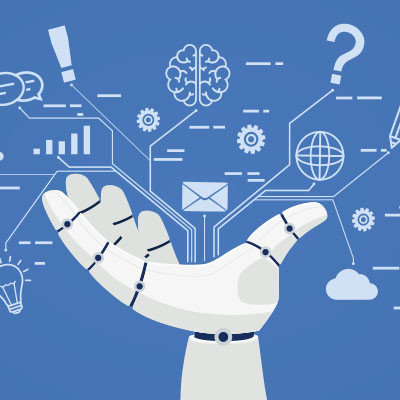Direct Technology Group Blog
Artificial Intelligence (AI) is everywhere it seems. At this juncture, AI proves invaluable in optimizing business operations and processes, but the applications of the technology are far more advanced than just building added efficiency. Let's briefly go into five ways AI can enhance business efficiency and foster optimal performance.
Artificial intelligence used to be the work of science fiction, but nowadays it is seen as very real and a possibility for businesses of all types. There are benefits to artificial intelligence, but it could also create problems in the future. Let’s take a look at some of these advantages and disadvantages.
Chatbots aren’t an unfamiliar technology. These artificially intelligent constructs are becoming more and more prevalent, especially with the rise of virtual assistants in recent years. Now, with an example of this technology residing in most new devices, it becomes important to consider what it could mean for businesses as this trend continues in the future.
There is no doubt artificial Intelligence is a growth field. Developers in countless industries are trying to leverage a machine learning program into better profits, but for practical use A.I. is seemingly limited. One place where A.I. has been impressive is in the cinema. A.I. may be just starting to play a big part in business, but it’s been a staple in Hollywood for decades. Today, we will look at A.I.’s portrayal on the silver screen and how the A.I. of today stacks up.
When it comes to cybersecurity, maintenance is key. Whether you choose human-based security or an automated security solution, running into shortcomings is still possible. Human security tends to rely on the word of experts, and anything that doesn’t fit into the guidelines is missed and may therefore get through and wreak havoc. Network security can be a touch overzealous, in a way “crying wolf,” with an excess of false positives that ultimately require human analysis, leading to human frustration.







